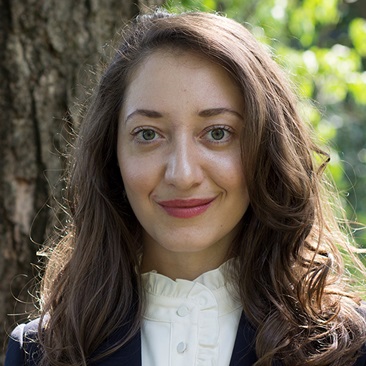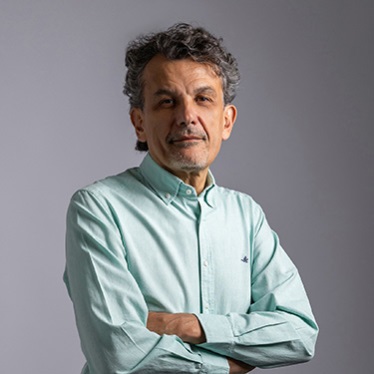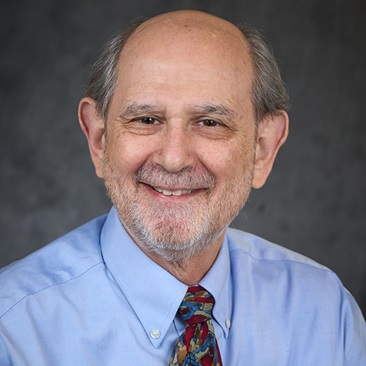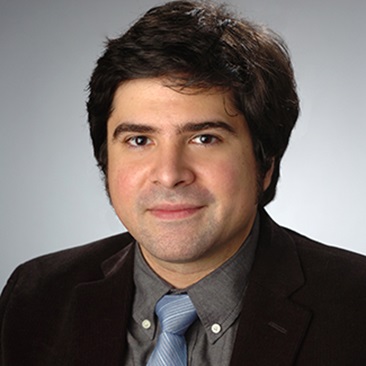Robert Rubinstein Honored With 2025 Wasserstrom Prize for Graduate Teaching
July 14, 2025
The award recognizes a faculty member who has an important impact on students and a special interest in the graduate seminar.
Robert Rubinstein, Distinguished Professor of Anthropology and professor of international relations, is the recipient of the 2025 Wasserstrom Prize for Graduate Teaching.
The prize is awarded annually to a faculty member from Maxwell and the College of Arts and Sciences who exemplifies the qualities of the late William Wasserstrom, a noted professor of English at Syracuse who died in 1985. Wasserstrom was a scholar known for his broad interests and profound impact on learning, with a particular teaching interest in the graduate seminar.
Conferred each May at the graduate school doctoral hooding ceremony, the award honors a faculty member for outstanding success as a graduate seminar leader, research and dissertation director, advisor and role model for graduate students.
“For the past eight years, Robert has served as the graduate director in the Anthropology Department, mentoring students through a tumultuous period that included COVID, and strengthening the department’s assessment, time to degree and effective use of department funds to allow students to balance coursework, exams, writing and field research,” said Dean David M. Van Slyke when he presented the award at the ceremony. “His spreadsheet of students and their status in the program is truly impressive and a great model for other departments”.
Rubinstein joined Maxwell in 1994 as an associate professor of anthropology. From 1994 to 2005 he directed the Program on the Analysis and Resolution of Conflicts (now the Program for the Advancement of Research on Conflict and Collaboration), in 2013 he was named a professor of law by courtesy appointment in the Syracuse University College of Law, and in 2016 he was named Distinguished Professor of Anthropology.
“His outstanding record as a scholar, graduate teacher, dissertation advisor and role model for graduate students embodies the ideals of the William Wasserstrom.”
Christopher DeCorse
Distinguished Professor and chair of anthropology
Van Slyke pointed out that Rubinstein has served as the principal advisor to 13 Ph.D. students, five of whom have won the outstanding dissertation award. In addition, he has served on 17 dissertation committees and teaches graduate classes including Negotiation: Theory and Practice, Multilateral Peacekeeping, Anthropological Theory, Anthropology and Public Policy, and Culture in World Affairs.
Christopher DeCorse, Distinguished Professor and chair of the Anthropology Department, nominated Rubinstein for the recognition. “Robert is an engaged and committed teacher, connecting with students at a personal level and taking active interest in their studies, dissertation research and career trajectories,” he wrote in his letter. “Many of the former doctoral students writing in support of Robert’s nomination are individuals who have kept in close contact with him for years.”
Rubinstein is a senior research associate for the Campbell Public Affairs Institute, Middle Eastern Studies Program, the Center for Qualitative and Multi-Method Inquiry and the Program for the Advancement of Research on Conflict and Collaboration. He specializes in political and medical anthropology and has conducted research in the United States, and internationally, including in Egypt, where he resided for four years, and throughout the Middle East, Belize and Mexico.
He was among the first to conduct research in the anthropology of peacekeeping, including in collaboration with the International Peace Academy, the United Nations Department of Peacekeeping Operations and the United States Army Peacekeeping Institute. In addition, he has developed community-based health interventions in Egypt as well as in the U.S. cities of Atlanta and Syracuse, focusing on inequalities in access to health care. He has also worked on health policy issues with the American Academy of Pediatrics, the Carter Center, the Georgia Department of Physical Health and the Onondaga County Health Department in New York state.
Rubinstein’s work has been funded by more than 20 organizations, including the National Science Foundation, the National Institutes of Health and the Wenner-Gren Foundation for Anthropological Research. He has published more than 100 articles in journals and books and is the author or editor of 10 books and research monographs. Additionally, he was a founding member of the Commission on Peace and Human Rights of the International Union of Anthropological and Ethnological Sciences, and served as the commission executive secretary for five years, and as commission co-chair for 30 years. He served on the board of directors of the Ploughshares Fund for 13 years. His prior honors include the 2016 Victor Sidel and Barry Levy Award for Peace from the American Public Health Association, and the 2010 Robert B. Textor and Family Prize for Excellence in Anticipatory Anthropology from the American Anthropological Association.
“Robert's recognition with the Wasserstrom award was past due and it was a pleasure to nominate him,” said DeCorse. “While decisions regarding graduate student support, concerns and continuances can be challenging, he has made this work dramatically easier with his careful review, compilation and assessment. His outstanding record as a scholar, graduate teacher, dissertation advisor and role model for graduate students embodies the ideals of the William Wasserstrom.”
By Mikayla Melo
Related News
School News

Jul 11, 2025
School News

Jun 24, 2025
School News

Jun 12, 2025

